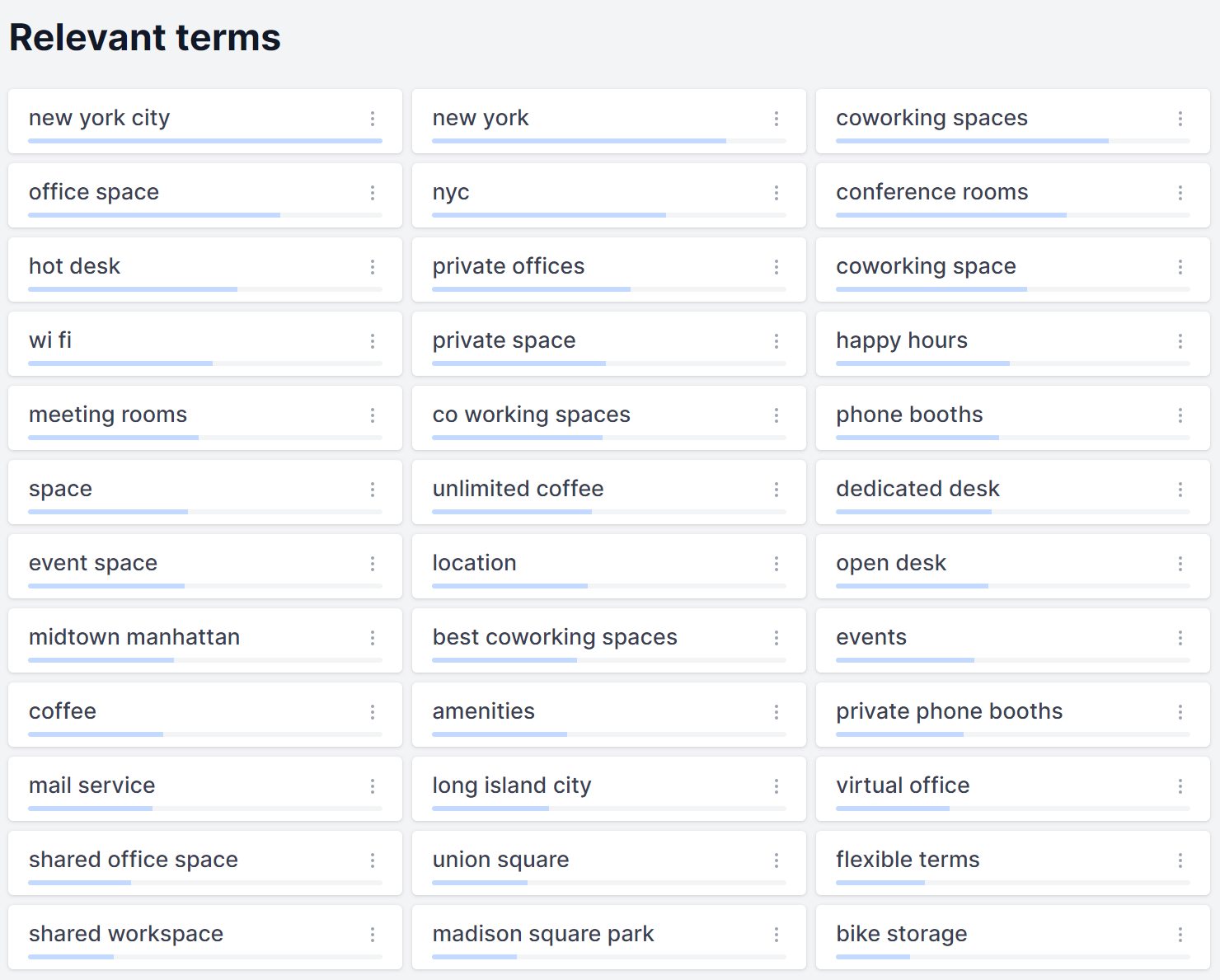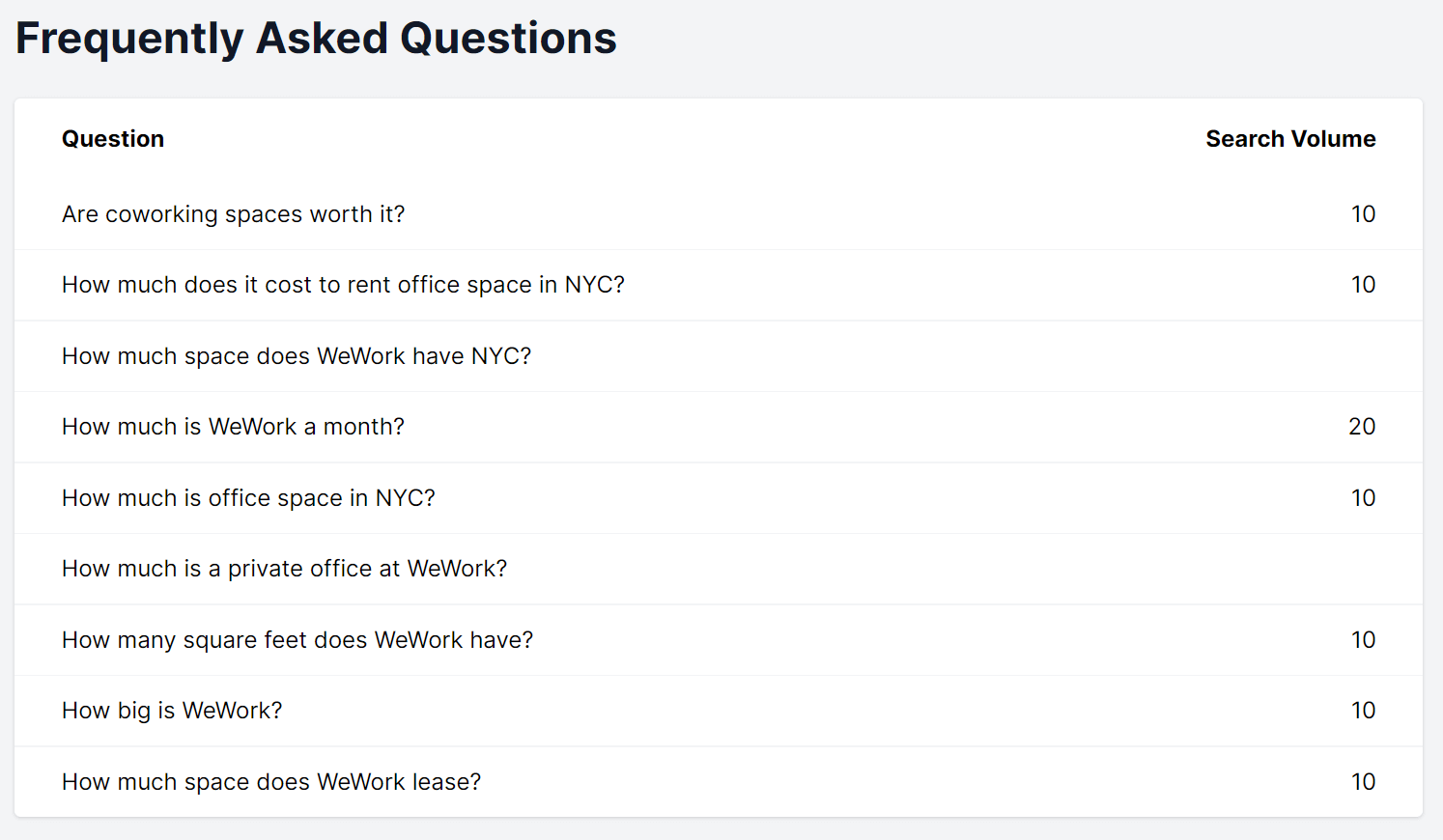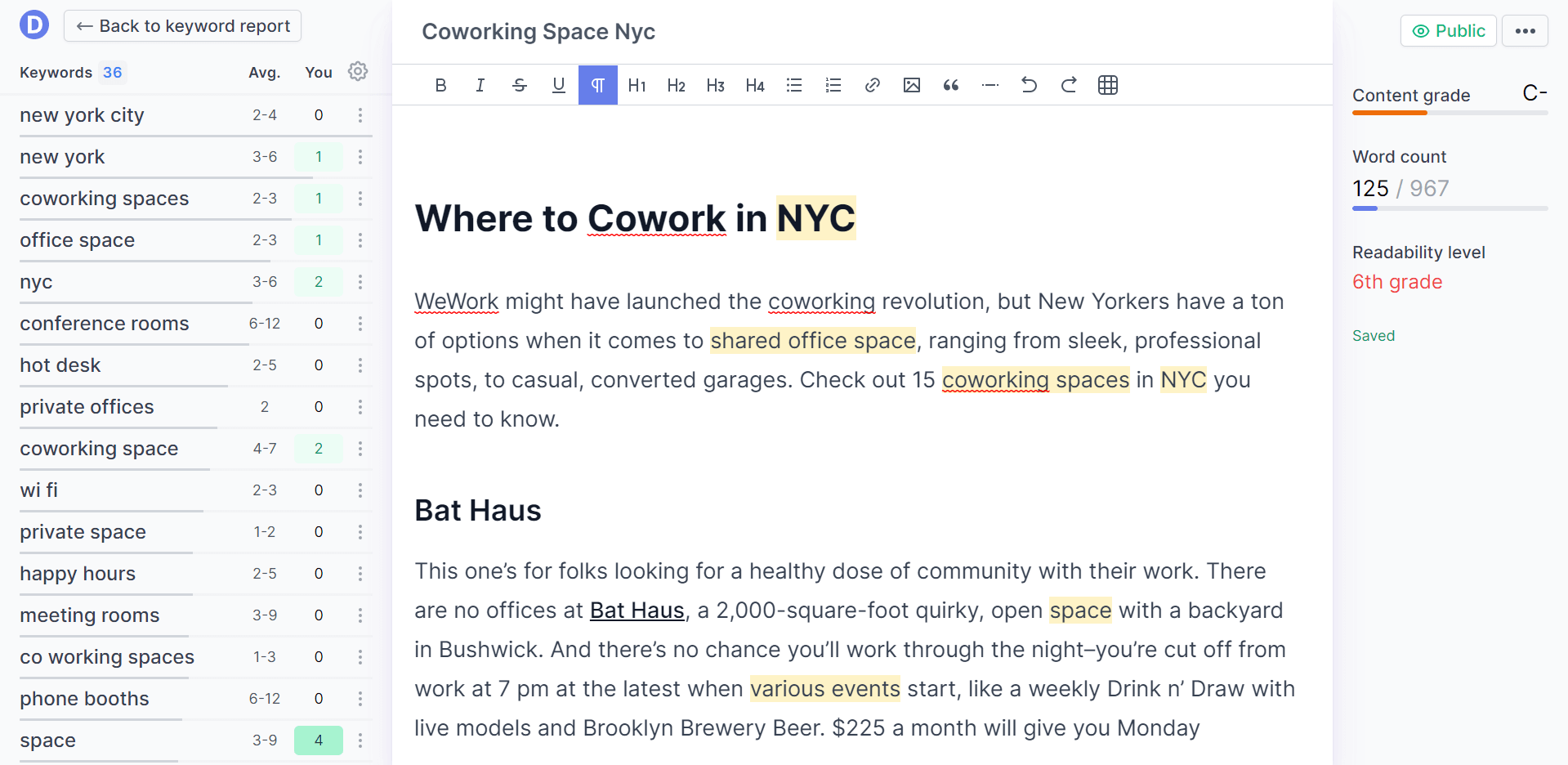Content Optimization Checker
Check if the quality of your content is superior to the top ranking results for your target keyword.
How it works
Submit your page
We analyze the top 10 results
Discover what is missing
What is content optimization?
Content optimization means writing the right content for both your users and search engines. Your content must be highly relevant and optimized for your audience and the intent behind their search. Optimized content covers the entire subject in depth, not just your keyword. Content that doesn't cover its subject thoroughly isn't considered relevant enough by search engines and doesn't rank.
How to optimize your content
Always consider the following questions when writing content.
- What is the user's intent, and what type of content will serve them best?
- What topics are relevant to your subject and to your reader's search query?
- What additional questions might the reader have about this topic?
Taking the time to answer these questions and do your research should be the first step when writing content. In this post, we'll go over all three of these points and show you how to do it quickly and efficiently. By using the right tools, you can save hours of time and get great results.
1. The right search intent
Writing relevant content starts with figuring out what the search intent is for the keyword you're targeting.
An easy way to figure this out is by looking at the Google SERP results and seeing what is currently being shown to users. If the search results show mostly product pages, you're going to have a hard time ranking with a listicle. If the top results are videos, written content might not be the best format.
2. Relevant terms
Your content marketing efforts will be for naught if you publish superficial content that hasn't been properly researched. Google's algorithm penalizes any content that doesn't add value.
Ask yourself what your target audience wants to know when they land on your page, and make sure you cover as much of what is relevant as possible. This means that your keyword research doesn't stop at identifying one main keyword with good organic traffic. It needs to go much further: You need to identify all the relevant keywords for your content and cover them in your post. In the SEO world, these are called LSI (Latent Semantic Indexing) keywords, and they help Google understand the content of a web page more deeply.
Let's take an example: let's say you want to write an article about co-working spaces in New York. You've done research on Ahrefs and found that the keyword "coworking space nyc" has quite a high search volume. So what should your blog post look like? A listicle of companies, their addresses, and prices? That's what most articles do, and it won't get you very far. You need to cover much more specific keywords that Google deems relevant if you want to rank high on the search engine results pages. And that list of keywords can be very long.
It's worth taking the time to define this list of LSI keywords and relevant terms by hand before you start writing content. You need to go through the first 20-30 Google results and note the most important keywords they cover. If you research properly, you will discover tens of additional relevant subjects that will make your content more thorough and valuable. The list of relevant terms will also help you create your content outline quickly.
3. Relevant questions
As with relevant terms, you need to include common questions that your target audience is asking. The goal is the same: to be thorough and complete. Having relevant questions in your content is a neat search engine optimization trick. Google inserts questions as snippets on the search results page.
So in the case of our keyword, examples of relevant questions might be:
- How much does it cost to rent office space in NYC?
- What are the benefits of coworking?
- Who is WeWork's biggest competitor?
Content optimization with Dashword
Here's how you can do all this research in just a few minutes with Dashword.
1. Find relevant terms
Instead of scouring search results and spending hours on Google, you can do your research for relevant terms much faster with Dashword. When you run a report for the keyphrase "coworking space nyc," Dashword scans the top results for you and extracts all the relevant terms among the top search results.
These are essentially the LSI keywords around your subject, and they help search engines understand your content better. You should cover as many of these as possible in your content.
Here's what the relevant terms Dashword extracted for our keyword look like:

2. Find relevant questions
Along with relevant terms, Dashword reports also show relevant questions for your keyphrase. For each question, the search volume is also shown. Search volume is usually not very high for questions, but focusing on the higher search volume questions can be an easy little win for additional search traffic.

3. Faster content creation
Dashword gives you all the relevant data for your keyword, but it also makes it super easy to take that data and start writing optimized content. All you have to do is create an article for your report, and you're ready to start writing.

In the content editor, Dashword shows you the relevant terms and gives you recommendations on how often each one should be used along with how many times you've already used it in your content. You'll also see a content score that updates as you write, along with word count and readability score. These insights make content optimization concrete and actionable.